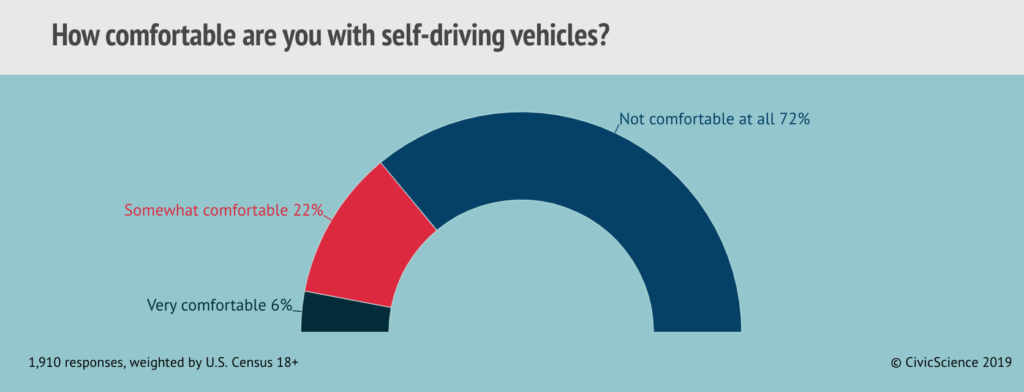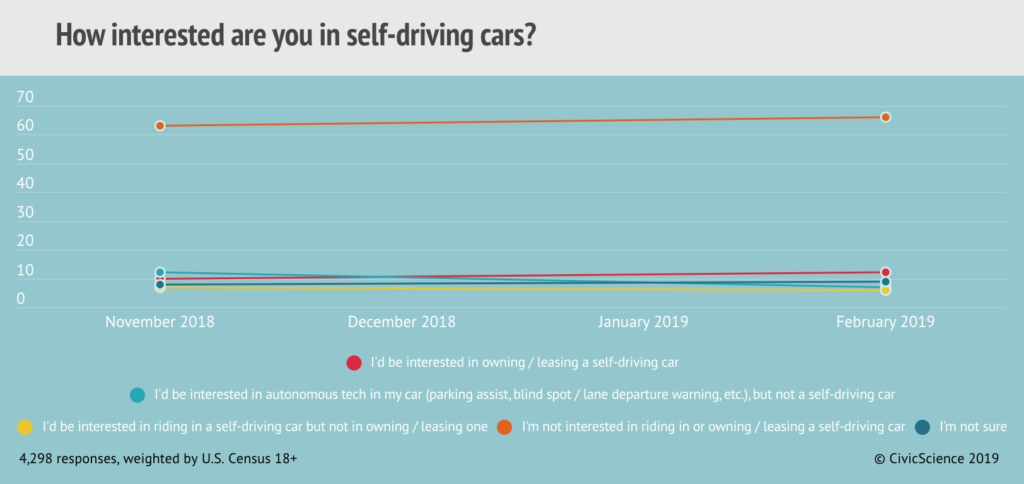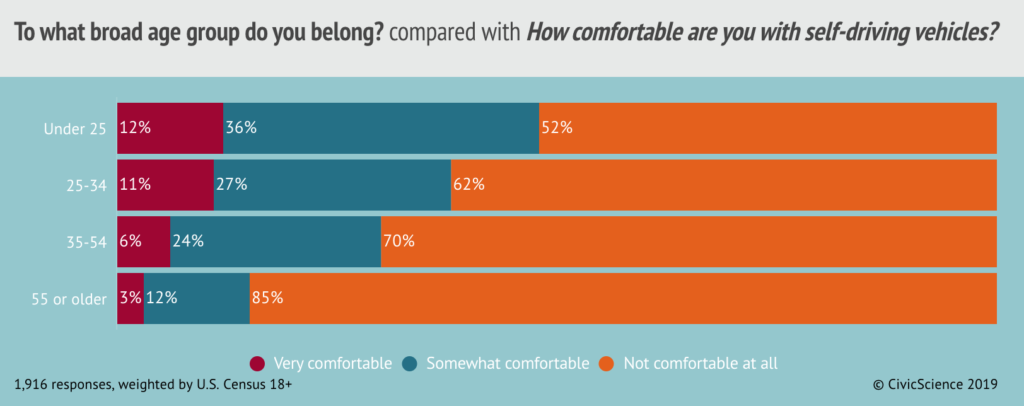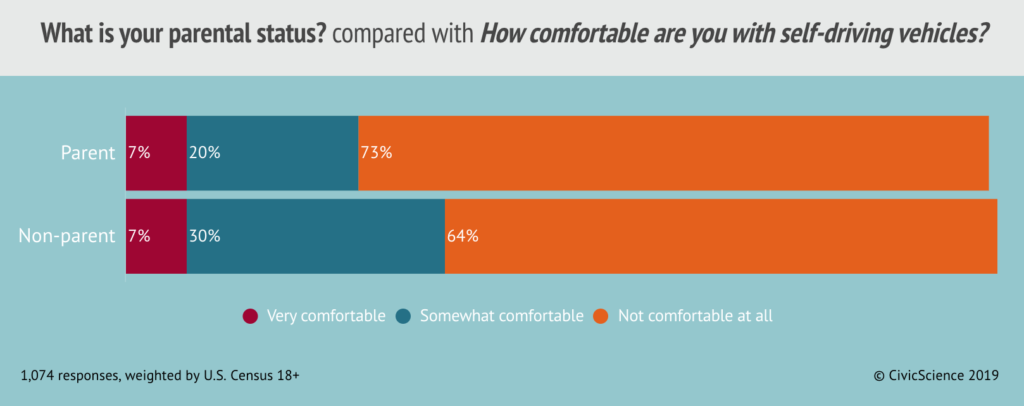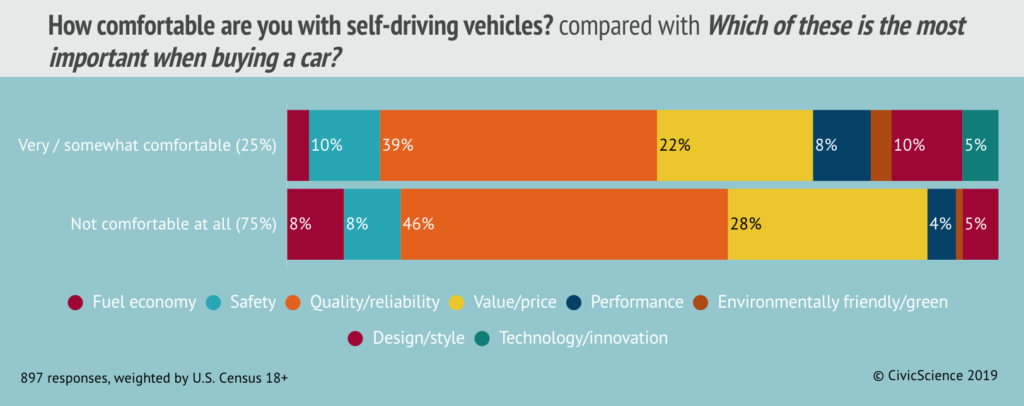News stories about driverless vehicles and autonomous technology highlighting fatal accidents and privacy are grounds for concern among consumers everywhere. While some sources say widespread concerns about self-driving cars were present before any accidents involving them, CivicScience data today doesn’t paint a brighter picture. As major car companies like GM move toward developing more autonomous technology, CivicScience examined attitudes towards comfort and adoption of self-driving cars.
In a CivicScience study of over 1,900 respondents, the U.S. public perception of self-driving cars doesn’t look hopeful. Nearly ¾ of U.S. adults report that they are “not comfortable at all” with them.
Taking it a step further, data surrounding perception and comfort ties into thoughts about adoption. 63% of U.S. adults are not interested in owning or riding in an autonomous vehicle.
Of the 22% of adults who indicated some level of interest, half would consider a car with autonomous technology such as parking assist and blind spot or lane merging alerts and half would consider owning a fully autonomous vehicle.
However, when tracking changes since late November 2018, there are two main trends that emerge: 1) Those who aren’t interested in self-driving cars at all has risen by 3 percentage points in less than 3 months and 2) interest in having autonomous tech in a car has dropped significantly from 12% to 7%.
Time will tell how much adoption will change, but as it stands today, what can we learn from who’s already on board with self-driving cars? And who will carmakers need to win over to make their investments in autonomous tech worthwhile?
Men have a more positive attitude
Men are nearly twice as likely than women to indicate comfort with self-driving cars. This could be a challenge for auto marketers hoping to generate awareness for new autonomous tech considering that women are increasingly becoming household decision makers for major purchases.
Younger adults are most likely to be on board
While being very comfortable with the idea of self-driving cars is wildly unpopular in the U.S., those under 25 are the most likely to have a positive outlook. Adults ages 55 or older, however, report the highest levels of discomfort.
Given that quality/reliability and value/price are considered two of the most important factors for U.S. car buyers, it’s no surprise that parents are more likely to be not at all comfortable.
Heightened interest in design, innovation, and environmental impact
While value and quality are still the most important factors U.S. adults take into consideration for car purchases, those who show some level of comfort with self-driving cars are much more likely to be interested in other factors – environmental friendliness, design/style, and technology and innovation.
While support now is low, much of the autonomous vehicle technology is still being developed. Carmakers have a long road ahead to improve public support of self-driving cars.
